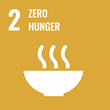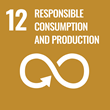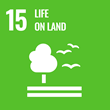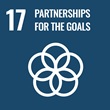Project information
Plastic in Agricultural Production: Impacts, Life-cycles and LONg-term Sustainability
(PAPILLONS)

- Project Identification
- 101000210
- Project Period
- 6/2021 - 5/2025
- Investor / Pogramme / Project type
-
European Union
- Horizon 2020
- Food security, sustainable agriculture and forestry, marine and maritime and inland water research (Societal Challenges)
- MU Faculty or unit
- Faculty of Science
- Cooperating Organization
-
Prague Institute of Chemical Technology
University of Ljubljana
Freie Universität Berlin
University of Bayreuth
Universita degli Studi di Bari
Universiteit Leiden
Vrije Universiteit Amsterdam
The University of Bonn
Forschungszentrum Julich GmbH
Nanjing University
Agricultural University of Athens
Koblenz-Landau University
National Research Council
Norwegian Institute for Water Research
- Responsible person Luca Nizzetto, PhD.
Natural Resources Institute Finland (Luke)
PAPILLONS will elucidate ecological and socioeconomic sustainability of agricultural plastics (APs) in relation to releases and impacts of micro- and nanoplastics (MNPs) in European soils. We will advance knowledge on sources, behaviour and impacts through cross-disciplinary research, bringing together scientists from chemistry, materials engineering, agronomy, soil ecology, toxicology and social sciences. We will transform the scientific knowledge generated into guidance on specific
solutions by applying a Multi-actor approach, involving actors in the agricultural and policy sector and world-leading industries. This will enable co-creation of knowledge and provide the scientific background to enable policy, agricultural and industrial innovation towards sustainable farm production systems.
We will deliver the first digital European atlas of AP use, management and waste production to estimate sources of MNP to agricultural soils. We will run integrative studies at laboratory, mesocosm and field scales in different parts of Europe to address: occurrence of AP-derived MNPs; MNP behaviour and transport in soil; uptake by biota and crops; long-term impacts on soil properties, fertility and ecological services; effects on biological and functional diversity across multiple scales; effects on plant production and quality; and socioeconomic impacts of AP-based practices. We will focus on multigenerational effect studies for relevant traditional and biodegradable polymers, at realistic and future high-exposure scenarios.
PAPILLONS partners pioneered soil MNP research, host the majority of European analytical capacity for assessing soil contamination and will provide validated, high-throughput analysis for MNPs in soil. Using innovative applications of state-of the- art analytical chemistry, we will advance analysis down to the nanoscale range and develop novel radiolabelled nanoplastics for accurately tracking behaviour and transport in soil and uptake by biota and crops.
Sustainable Development Goals
Masaryk University is committed to the UN Sustainable Development Goals, which aim to improve the conditions and quality of life on our planet by 2030.
Publications
Total number of publications: 4
2025
-
Conventional and biodegradable agricultural microplastics: effects on soil properties and microbial functions across a European pedoclimatic gradient
Environmental Pollution, year: 2025, volume: 386, edition: December 2025, DOI
-
Effects of biodegradable microplastics on soil microbial communities and activities: Insight from an ecological mesocosm experiment
SCIENCE OF THE TOTAL ENVIRONMENT, year: 2025, volume: 975, edition: May 2025, DOI
-
Sublethal effects of microplastics sourced from polypropylene agricultural plastics on four soil invertebrate species
Journal of Hazardous Materials, year: 2025, volume: 499, edition: November, DOI
2024
-
Microplastics originated from agricultural mulching films affect enchytraeid multigeneration reproduction and soil properties
Journal of Hazardous Materials, year: 2024, volume: 479, edition: November 2024, DOI



